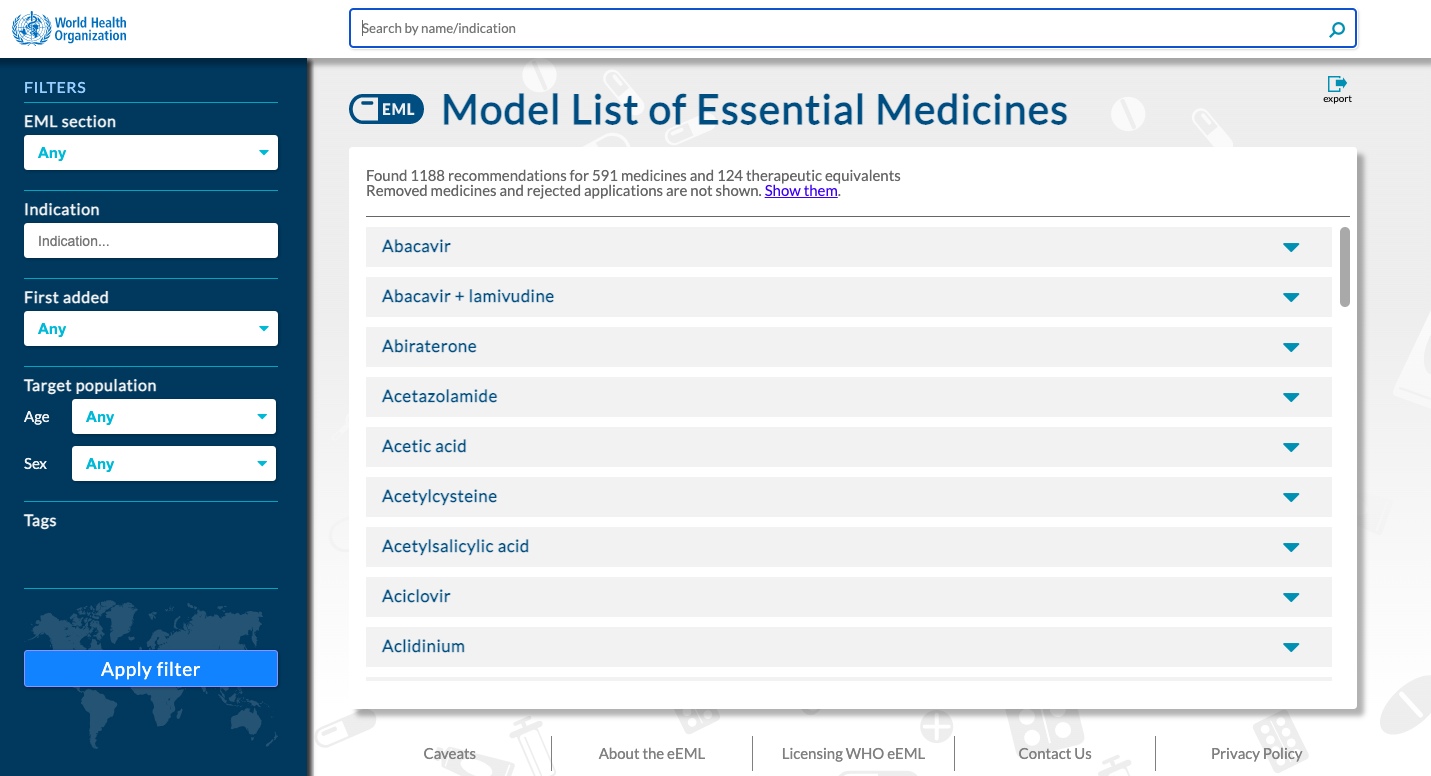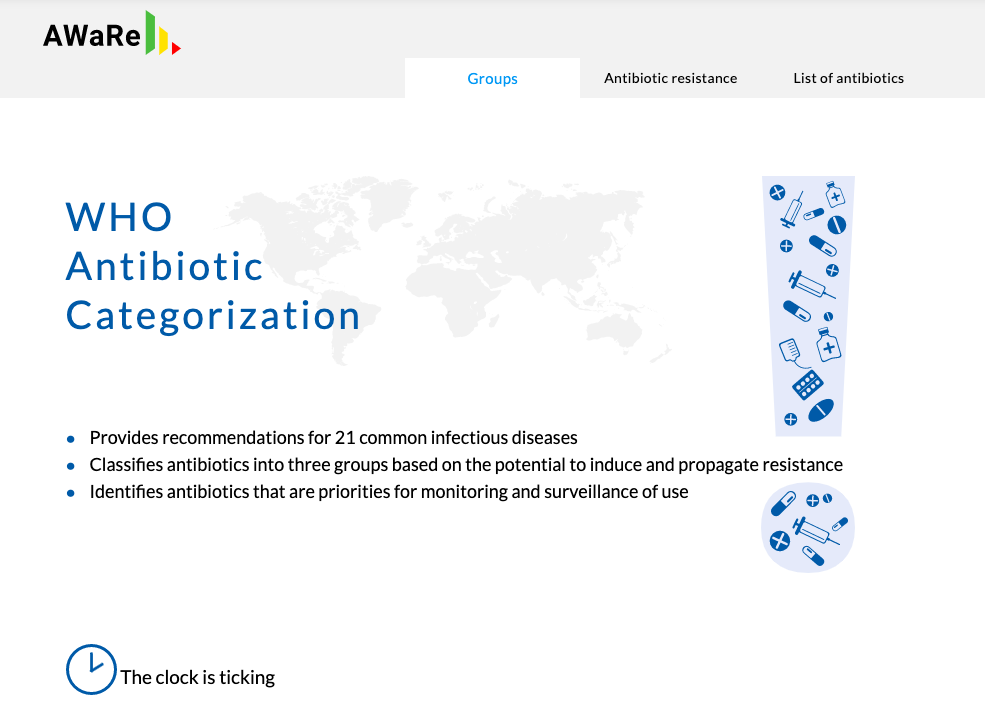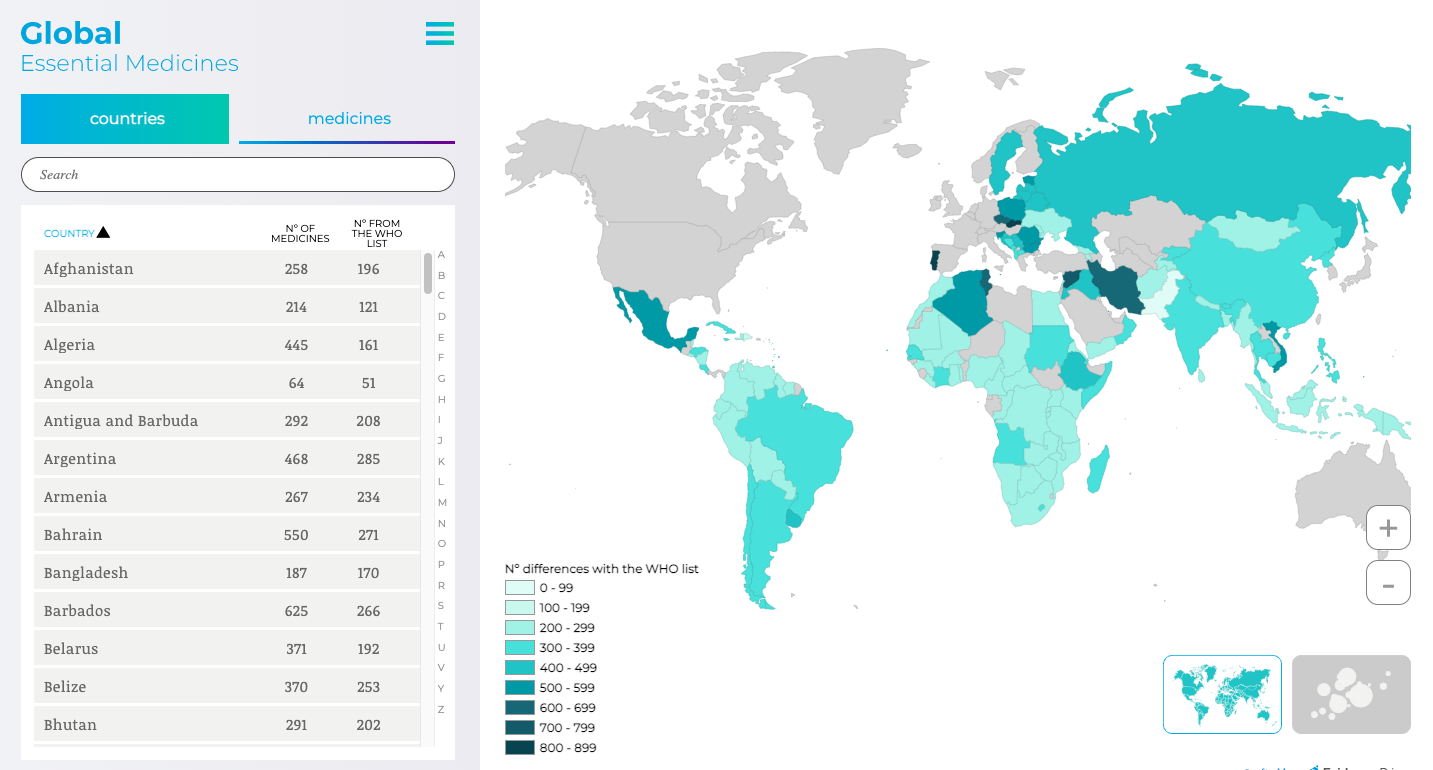The WHO Essential Medicines List Antibiotic Book
The below webinars highlighted the use of the WHO Essential Medicines List Antibiotic Book with the aims of outlining its purpose, how it was developed, and how it can be used, as well as what the WHO expects from the public consultation phase. The resources listed below are available on the WHO website, but we've included them here for your convenience and ease of access.
Read the book:
- The WHO Essential Medicines List Antibiotic Book: improving antibiotic AWaReness
- The WHO Essential Medicines List Antibiotic Book: infographics
Questions and Answers
The WHO Essential Medicines List Antibiotic Book Q&A
There have been two webinars hosted by WHO to promote the implementation of national antimicrobial resistance action plans. They are posted here for convenience of access since they are available on the WHO website:
|
November 18, 2021 |
March 1, 2022 |
|
Development of the EML antibiotic book: Dr Benedikt Huttner, Team Lead, EML Secretariat |
Session 1 and 2: Using the EML book in the hospital setting: Dr Loice Achieng Ombajo, Kenya |
|
Using the EML Antibiotic Book in the hospital setting: Dr Loice Achieng Ombajo, University of Nairobi, Kenya |
Session 1: Using the EML book in the primary care setting: Dr Mark Mendelson, South Africa |
|
Using the EML Antibiotic Book in the primary care setting: Dr Pem Chuki, Jigme Dorji Wangchuck National Referral Hospital, Thimphu, Bhutan |
Session 2: Using the EML book in the primary care setting: Dr Sumatnath Gandra, India/ USA |
|
Watch the meeting recording: Panel discussion, question & answer session |
|

The eEML is a comprehensive, freely accessible, online database containing information on essential medicines. The eEML combines detailed medicine information (e.g. pharmaceutical) data with comprehensive evaluation of benefits, harms and costs (e.g. effectiveness, safety, implications for health care systems) information. Most importantly the eEML provides the data related to the status of a medicine as an essential medicine.

The AWaRe Portal is a free online resource intended to increase public awareness of issues regarding antibacterial resistance. Taking account of the global recognition of the need for effective antimicrobial stewardship, as well as the need to ensure immediate access to necessary antibiotics and appropriate prescribing, WHO developed a framework based on three different categories – Access, Watch and Reserve – which all together forms the AWaRe categorization of antibiotics.

We created a database of the essential medicines lists for 137 countries by searching the World Health Organization’s National Essential Medicines Lists Repository in June of 2017 and manually abstracting information about which medicines were included in each list. More than 2000 unique medicines are listed. This information about 137 national essential medicines lists is intended to facilitate sharing and decision-making capacity globally and also identify opportunities for improving essential medicines lists.
